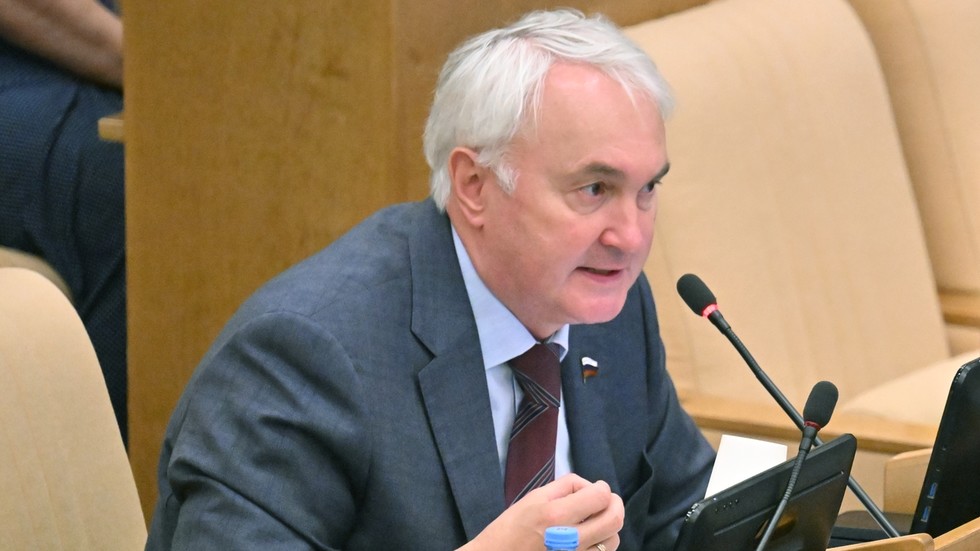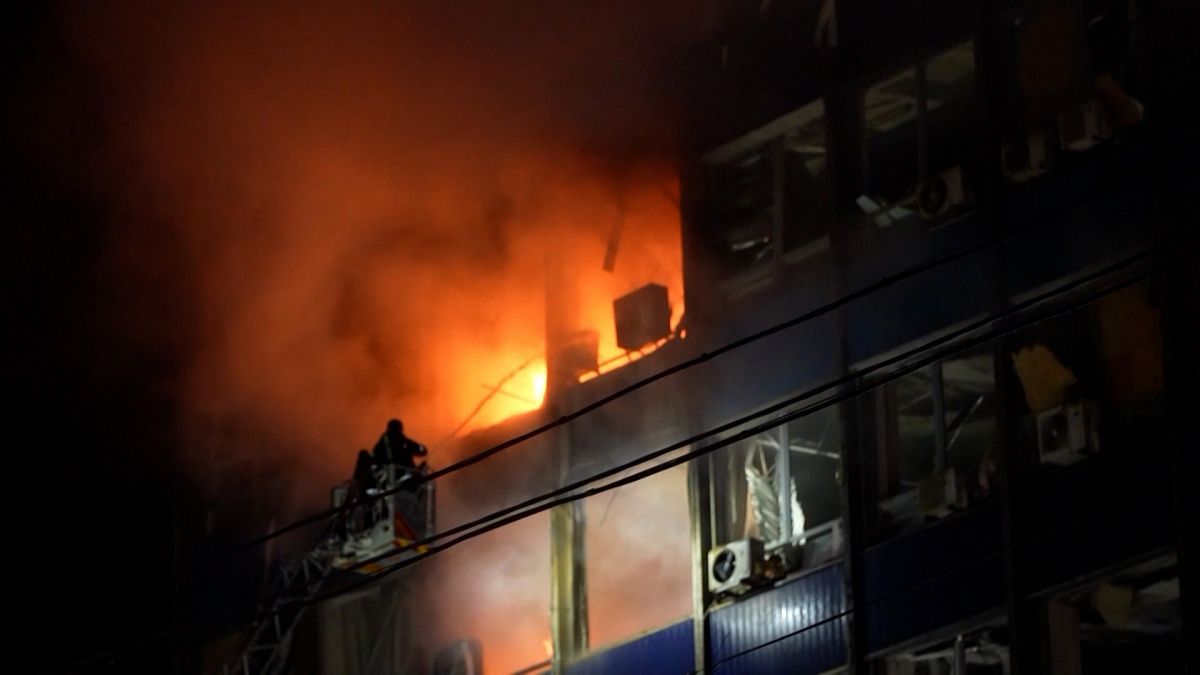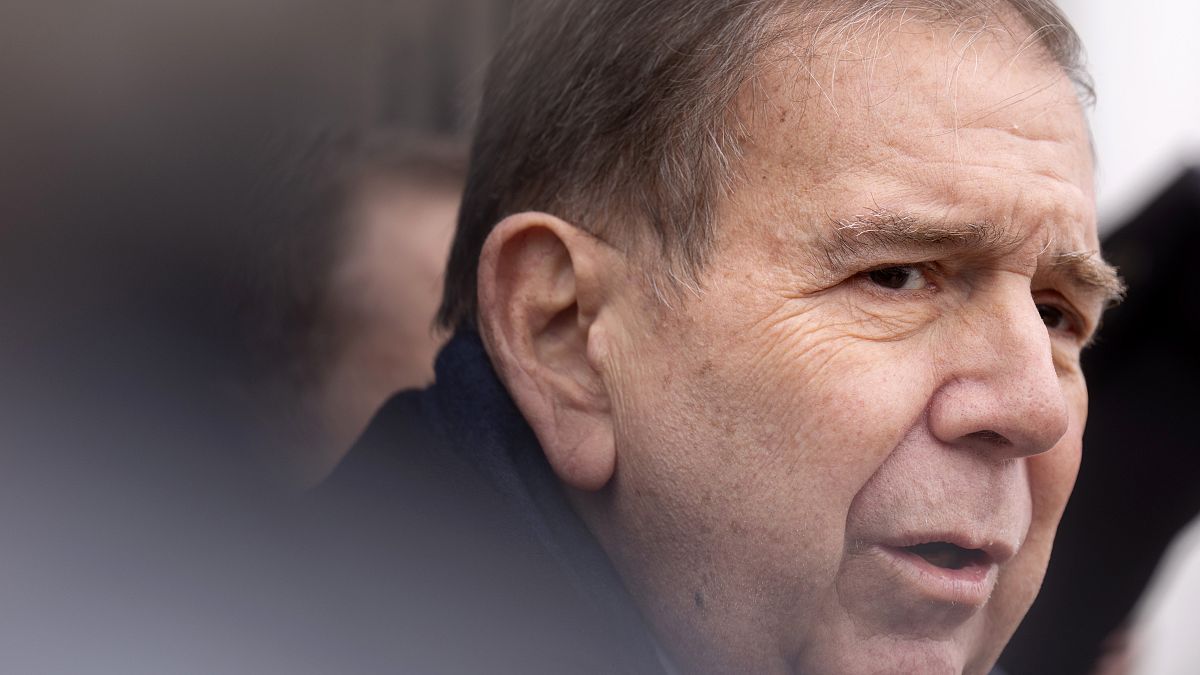By Rushan Abbas, Founder and Executive Director, Campaign for Uyghurs, Chairperson of Executive Committee, World Uyghur Congress
The opinions expressed in this article are those of the author and do not represent in any way the editorial position of Euronews.
To the Uyghurs in China and elsewhere, our democracy holds the promise that one day, their voices might finally be heard. We cannot let it be eroded, Rushan Abbas writes.
As a Uyghur American and advocate for human rights, watching President Donald Trump’s victory was personal. For many in the Uyghur community, this is not just another political transition but a matter of survival.
As we continue to fight, we wonder what this new chapter in American leadership will mean for our people back home.
Will the new administration bring renewed focus and action to our plight, or will the Uyghur crisis again be sidelined in favour of other priorities?
In the dying hours of the previous Trump administration, the US became the first country to recognise China’s brutal campaign against its marginalised minorities as genocide.
Lawmakers from both parties united to address these atrocities, passing the Uyghur Forced Labor Prevention Act (UFLPA) in 2021, which aims to block products made with forced labour from US markets, protecting consumers and pressuring companies to ensure their supply chains are free from human rights abuses.
But despite these efforts, the Communist Party of China (CCP) continues to run the largest state-run forced labour system on the planet, enslaving 3 million Uyghurs.
My innocent sister is also in prison, condemned for six years and counting as punishment for my activism. In other countries, Uyghur people — including children — are dying in custody.
Obedience not a choice
Growing up in the so-called “Xinjiang Uyghur Autonomous Region,” under the occupation of the People’s Republic of China, obedience to the CCP was not a choice.
From the first day of school, we were taught to revere the Party without question. Questioning authority was dangerous; dissent could destroy not only one’s own life but also the lives of loved ones. Compliance became a deeply ingrained survival skill.
And the CCP does not just operate within its borders — it spreads disinformation, conducts cyberattacks and uses economic leverage to shape global public opinion.
During the COVID-19 pandemic, it flooded social media with false narratives, deflecting blame and deepening divisions in American society.
When Congress debated the “TikTok Bill,” lawmakers received a wave of phone calls from teenagers, orchestrated by the app itself, urging them to vote against the legislation.
Even today, events speaking out against the Uyghur genocide are cancelled, while the CCP runs covert police stations and influence networks on American soil to monitor and intimidate Uyghur Americans.
These incidents highlight how deeply the CCP seeks to interfere with and manipulate American democracy.
Expand sanctions to curb genocidal practices
On arriving in the US in 1989, I was struck by the openness and diversity of opinion. The first time I voted, I felt the power of knowing my voice mattered.
Recently, I overheard a man say flippantly to his friend, “There goes America, just becoming another dictatorship.” My heart sank. I wanted to stop and tell him what a real dictatorship looks like. The right to choose, change and critique our leaders is a privilege — and one that people living under authoritarian regimes can only dream of.
But this strength is not guaranteed; it depends on our collective resolve to protect it. As growing scepticism and polarisation are causing Americans to lose faith in the democratic process, we risk handing a carte blanche to those who persecute their own people, leaving their actions unchecked and unchallenged.
As three-quarters of Americans express fears that democracy is under threat and less than half believe it serves the people, the CCP’s influence is growing, as are its repressive practices — concentration camps, genocide, surveillance, and indoctrination practices against the Uyghurs, Tibetans, Hong Kongers and many others.
The Biden administration took important steps to hold China accountable by expanding Global Magnitsky Act sanctions and enforcing the UFLPA.
I urge the next administration to build on these efforts, targeting Chinese officials and companies involved in Uyghur atrocities. Expanding sanctions can help curb the CCP’s forced labour, genocide, surveillance, and indoctrination practices.
Do we (still) care?
America’s commitment to human rights will be tested by addressing the urgent issue of Uyghur hostages detained in China. The US must pressure China for their release and collaborate with international allies.
With the genocide designation in place, it's also crucial to grant asylum to Uyghurs who have found refuge in the US, ensuring their safety from persecution.
For those of us who have experienced authoritarian rule, democracy’s freedoms embody the essence of what it means to live fully. And by standing with the Uyghurs, the US reaffirms its core values of justice, liberty, and human dignity.
To the Uyghurs in China and elsewhere, our democracy holds the promise that one day, their voices might finally be heard. We cannot let it be eroded.
Rushan Abbas is the Founder and Executive Director of the Campaign for Uyghurs and Chairperson of the Executive Committee of the World Uyghur Congress (both organisations nominated for the Nobel Peace Prize), dedicated to advancing human rights and democratic freedoms for Uyghurs globally.

 1 month ago
15
1 month ago
15






 We deliver critical software at unparalleled value and speed to help your business thrive
We deliver critical software at unparalleled value and speed to help your business thrive






 English (US) ·
English (US) ·